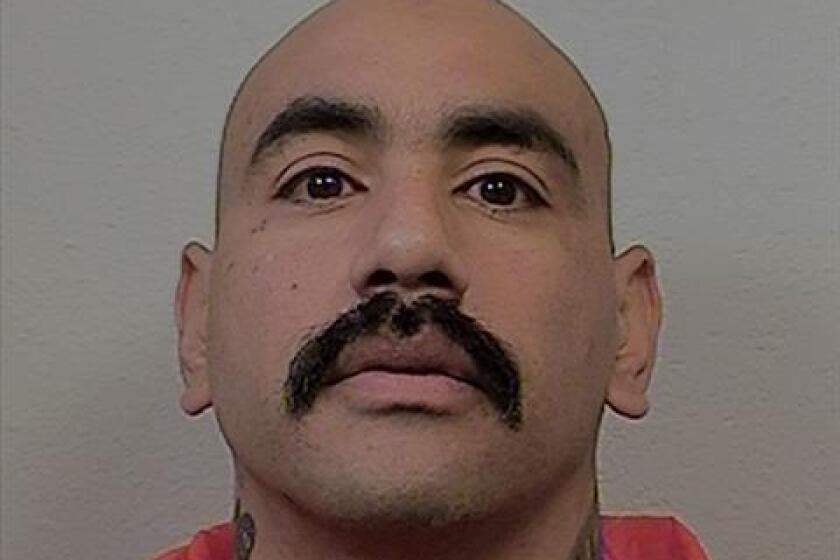Seattle-Area Natural Medicine Clinic Builds a Bridge of Options
Georgy Gazhenko has suffered from chronic back and leg pain for nearly a quarter-century, the legacy of years of hard labor on a Soviet farm collective.
In both his native Ukraine and the United States, where he has lived for five years, Gazhenko has tried--with minimal results--a number of painkilling medications, injections and physical therapy. He began to believe back surgery was his only option.
“I was desperate,” Gazhenko said through an interpreter. “I had a lot of pain. I could not stand for 10 minutes.”
But even surgery carries no guarantees, so Gazhenko sought an alternative at the King County Natural Medicine Clinic at the Kent Community Health Center in this community between Seattle and Tacoma.
In selecting the clinic, Gazhenko became part of an experiment in health-care delivery that locals hope will make Kent the “natural medicine” capital of the world.
“We want people to see that natural medicine works, that it’s cost-effective,” said Mark Bresnick, project manager for the clinic.
The county clinic, which opened in November, is the nation’s first publicly funded natural medicine clinic, he said.
Its mission is to provide a combination of conventional Western medicine and natural alternatives to low-income, immigrant and refugee populations, said Bresnick, who also is director of Bastyr University’s Natural Health Clinic in Seattle.
Bastyr, an accredited natural medicine university, is leading the two-year, $1.2-million project in collaboration with the private, nonprofit Community Health Centers of King County, which is the Kent clinic’s parent group, and the Statistics & Epidemiology Research Corp., which is evaluating the program.
The Seattle-King County Department of Public Health is providing the funding for the project, which includes $750,000 in start-up money from the state. King County’s six community health centers provide referrals to the natural medicine clinic.
The waiting room in the Kent center, which is open to everyone, can be like a tiny United Nations. There are patients from Russia, Ukraine, Mexico, Bulgaria, Vietnam, Korea, Thailand, Somalia and other countries, receptionist Robin Karrick said.
Gazhenko is here to see Augusto Romano, a licensed acupuncturist originally from Italy.
Stripped down to his shorts, Gazhenko stretches out on his stomach atop a padded massage table. Romano deftly eases several acupuncture needles into Gazhenko’s back. Then he places small cups over the needles to create suction on the back and draw out toxins. After several minutes, he removes the needles and cups and ends the session with some light massage.
“The way I work is systemic,” Romano said. “The goal is to teach the body balance, to get better circulation and produce endorphins.”
He sends Gazhenko home with some Chinese herbs to help him sleep.
Gazhenko, 59, isn’t cured after five visits with Romano. But his pain has been significantly reduced, and he no longer needs a cane.
“People choose natural medicine for many reasons,” said Dr. Cindy Breed, a naturopath who works at the clinic and also has a private practice. “Some people want to address things in a natural way before turning to drugs and surgery.”
Staff at the six family-practice health centers have identified certain ailments that must receive conventional primary care, including stroke, acute hypertension, bone fractures, prenatal care, and newborn and infant care through two months.
At the same time, the centers suggest that patients consider a naturopathic consultation for such conditions as ear infections, food allergies, migraines, asthma, premenstrual syndrome, enlarged prostate and ulcers.
“In some instances, one is better than the other,” Breed said. “Sometimes people need surgery, but in all cases natural remedies can be supportive.”
There is plenty of room for both conventional medicine and natural medicine in the healing arts, said Merrily Manthey, a stress-management consultant and a member of the city task force that helped secure the natural medicine clinic for Kent.
Although still in its infancy, the clinic is expected to be popular. A health-centers survey showed 60% of patients were interested in natural medicine options.
In addition to offering health-care choices that are rarely available to the poor, the clinic is an experiment for doctors.
One factor that will be evaluated after two years is the extent to which natural therapies are adopted by conventionally trained physicians, said Dr. Marty Ross, medical director of the Community Health Centers of King County and a member of the Kent health center staff.
These doctors’ responses to the natural-medicine clinic option have ranged from “excitement to upset,” he said.
Ross himself is enthusiastic, saying, “We can all learn from each other.”
The American Medical Assn. is open but skeptical to the subject of alternative therapies, said its president, Daniel Johnson, a diagnostic radiologist in Metairie, La., a New Orleans suburb.
The AMA supports federal research into natural medicine. Doctors want what is most effective for their patients, whether it’s ancient or high-tech, he said.
“Rather than take any kind of pejorative position, we support accumulating good information about what works best. That applies as much to alternative treatments as it does to mainstream medicine,” Johnson said.
More to Read
Sign up for Essential California
The most important California stories and recommendations in your inbox every morning.
You may occasionally receive promotional content from the Los Angeles Times.










